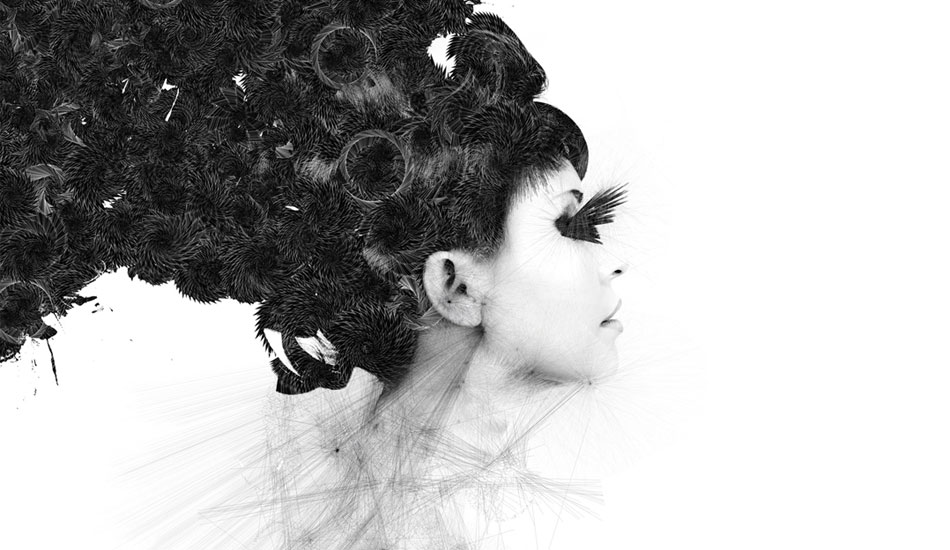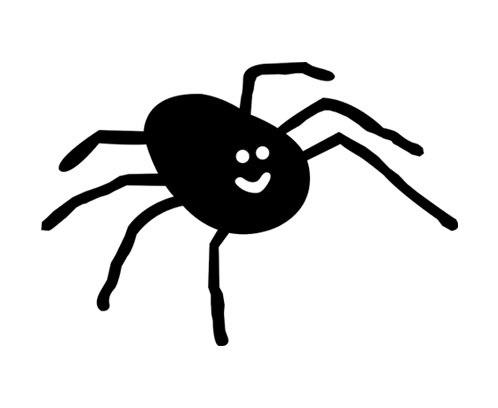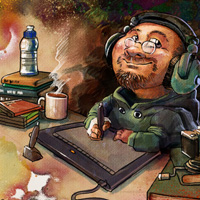- photo contests ▼
- photoshop contests ▼
- Tutorials ▼
- Social ▼Contact options
- Stats ▼Results and stats
- More ▼
- Help ▼Help and rules
- Login
- Register





Recognizing and Leveraging Your Strengths as an Artist
For aspiring artists today, the field of art is incredibly broad. There are more subcultures, trends, and niches to appeal to today than there ever have been. With the advent of cheaper NLE software and 3D programs, the would-be artist isn’t limited to basic tools or low-quality production values.
These days, the possible routes an artist can take are many and they keep increasing in number. This newfound freedom, however, has an unfortunate side effect. Prospective artists sometimes don’t know which road to take, which field to enter, where to focus.
 The idea of the generalist artist has never been very popular. Andy Warhol was a pop artist, Picasso was a cubist, Mondrian promoted neo-plasticism. Though these famous artists expressed themselves through avenues other than their main genre and type of art, they were always limited by lack of training, lack of suitable equipment, and the generally limited exposure they got outside of the art world.
Today, an artist almost has to be multi-talented to be considered worthwhile, especially with the increasing focus in employing artists in large, complex pipelines of Hollywood and Madison Ave. 3D sculptors often learn about texturing and lighting. Animators often have to be capable special effects artists.
Though studios focus on maintaining specialist spots, having a secondary talent is a major plus. To an experienced artist, finding that secondary talent is no challenge. Years of work in a production environment makes professional artists realize what their strengths and weaknesses are. An aspiring artist would do well to accelerate the process by which this knowledge is acquired so they can spend more time being productive and less time being frustrated.
The idea of the generalist artist has never been very popular. Andy Warhol was a pop artist, Picasso was a cubist, Mondrian promoted neo-plasticism. Though these famous artists expressed themselves through avenues other than their main genre and type of art, they were always limited by lack of training, lack of suitable equipment, and the generally limited exposure they got outside of the art world.
Today, an artist almost has to be multi-talented to be considered worthwhile, especially with the increasing focus in employing artists in large, complex pipelines of Hollywood and Madison Ave. 3D sculptors often learn about texturing and lighting. Animators often have to be capable special effects artists.
Though studios focus on maintaining specialist spots, having a secondary talent is a major plus. To an experienced artist, finding that secondary talent is no challenge. Years of work in a production environment makes professional artists realize what their strengths and weaknesses are. An aspiring artist would do well to accelerate the process by which this knowledge is acquired so they can spend more time being productive and less time being frustrated.
 The first step to understanding your strengths as an artist is to be exposed to art. By art I mean every kind of art. Escher, Giger, Malevich, and all the interesting artists on places like deviantArt and Behance. Exposure creates preferences and gets you out of the paralysis you may experience when faced with an innumerable amount of choices.
If you like a particular effect or style of art, research how it’s done to see if it’s something you already have the tools and skills for. Sometimes, other art appears so well done that we think it’s impossible to recreate. Your favorite style of art just might be exactly what you’re qualified for.
Once you know you don’t want to model 3D monsters or create user interfaces, you’re already ahead of the competition. These days we can see more art in an hour than our ancestors saw in a year. Exercise this freedom as much as possible so you know where your passion lies.
The first step to understanding your strengths as an artist is to be exposed to art. By art I mean every kind of art. Escher, Giger, Malevich, and all the interesting artists on places like deviantArt and Behance. Exposure creates preferences and gets you out of the paralysis you may experience when faced with an innumerable amount of choices.
If you like a particular effect or style of art, research how it’s done to see if it’s something you already have the tools and skills for. Sometimes, other art appears so well done that we think it’s impossible to recreate. Your favorite style of art just might be exactly what you’re qualified for.
Once you know you don’t want to model 3D monsters or create user interfaces, you’re already ahead of the competition. These days we can see more art in an hour than our ancestors saw in a year. Exercise this freedom as much as possible so you know where your passion lies.
 The next step is to try your hand at some artistic experiments. The expectation that some amateur artists have is that, given a few years and a couple of product manuals, they, too, can be as good as the artists they admire online and offline. The reality is that much of art is experimentation, and great art almost never follows the linear path that amateurs expect to take.
Much of art is as philosophical as it is mechanical. Without giving your art some underlying idea or tweaking with the settings of your program, you’re doing yourself and your career a great disservice. There are thousands of people out there producing average, bland products and calling themselves designers or artists, and they do so not out of a lack of talent so much as out of fear of the unknown. Experimentation leads to new artistic paradigms. Copycats just perpetuate bad fashion.
The next step is to try your hand at some artistic experiments. The expectation that some amateur artists have is that, given a few years and a couple of product manuals, they, too, can be as good as the artists they admire online and offline. The reality is that much of art is experimentation, and great art almost never follows the linear path that amateurs expect to take.
Much of art is as philosophical as it is mechanical. Without giving your art some underlying idea or tweaking with the settings of your program, you’re doing yourself and your career a great disservice. There are thousands of people out there producing average, bland products and calling themselves designers or artists, and they do so not out of a lack of talent so much as out of fear of the unknown. Experimentation leads to new artistic paradigms. Copycats just perpetuate bad fashion.
 You have to admit to yourself that you’re not suited for every kind of art there is. If you’re not the greatest illustrator, don’t torture yourself with the idea that if you only spend more time at it, eventually you’ll become good. It may be true, but it’s missing the point. That time spent getting better at illustrating could be spent better in a field you’re naturally talented at. Take something from illustrating that you love, say making wild and beautiful shapes, and mix it with another art form you’re interested in, like music videos or physical installations. You just might find yourself both happier and more productive than you’ve ever been before.
Once you’re aware of your strengths, don’t let them lie dormant and have your career be defined by a generic title. If you’re great at drawing buildings, leverage this strength as much as possible. Calling yourself an “Architectural Illustrator” brings to mind a far more expert figure than someone who calls themselves a “2D Artist.” You have to own your strengths and not fear being a specialist.
The curious thing is, with a clearly defined skill set, you will have many more opportunities to branch out across the various fields of art than you would if your skills were more broadly defined. Market yourself in accordance with your passions in art. You stand to lose a lot more as a bland jack of all trades, which is how many amateur artists foolishly market themselves.
You have to admit to yourself that you’re not suited for every kind of art there is. If you’re not the greatest illustrator, don’t torture yourself with the idea that if you only spend more time at it, eventually you’ll become good. It may be true, but it’s missing the point. That time spent getting better at illustrating could be spent better in a field you’re naturally talented at. Take something from illustrating that you love, say making wild and beautiful shapes, and mix it with another art form you’re interested in, like music videos or physical installations. You just might find yourself both happier and more productive than you’ve ever been before.
Once you’re aware of your strengths, don’t let them lie dormant and have your career be defined by a generic title. If you’re great at drawing buildings, leverage this strength as much as possible. Calling yourself an “Architectural Illustrator” brings to mind a far more expert figure than someone who calls themselves a “2D Artist.” You have to own your strengths and not fear being a specialist.
The curious thing is, with a clearly defined skill set, you will have many more opportunities to branch out across the various fields of art than you would if your skills were more broadly defined. Market yourself in accordance with your passions in art. You stand to lose a lot more as a bland jack of all trades, which is how many amateur artists foolishly market themselves.
 It’s a common misconception that some fields of art are easier than others. The aspiring artist would be tempted to take a road that seemingly requires less effort, but still gets them to their destination. Don’t make this mistake. Photography is no easier than vector animation, but you’d have to actually work in both of these fields for a while to reach this conclusion. Each field has developed its own tastes, its own tests, and its own language.
If you’re serious about being an artist, taking the easy road at the outset will only get you in trouble later on as you discover that your fellow artists are challenging themselves daily to push the envelope in their field. If you’re not interested in doing the same, you don’t belong there. As Harlan Ellison, the fiction writer, says, “Art should always be tough. Art should demand something of you. Art should involve foot-pounds of energy being expended. It’s not supposed to be easier, and those who want it easier should not be artists.”
Find something you’re willing to work hard for. This involves staying up late to get that perfect finishing touch, working around the clock to deliver a great product to the client, and making a sacrifice of both your time and your energy. You’ll likely find that you’re willing to work hard for things you’re interested in, but you must first understand what those things are in order to leverage your strengths and become a better artist.
It’s a common misconception that some fields of art are easier than others. The aspiring artist would be tempted to take a road that seemingly requires less effort, but still gets them to their destination. Don’t make this mistake. Photography is no easier than vector animation, but you’d have to actually work in both of these fields for a while to reach this conclusion. Each field has developed its own tastes, its own tests, and its own language.
If you’re serious about being an artist, taking the easy road at the outset will only get you in trouble later on as you discover that your fellow artists are challenging themselves daily to push the envelope in their field. If you’re not interested in doing the same, you don’t belong there. As Harlan Ellison, the fiction writer, says, “Art should always be tough. Art should demand something of you. Art should involve foot-pounds of energy being expended. It’s not supposed to be easier, and those who want it easier should not be artists.”
Find something you’re willing to work hard for. This involves staying up late to get that perfect finishing touch, working around the clock to deliver a great product to the client, and making a sacrifice of both your time and your energy. You’ll likely find that you’re willing to work hard for things you’re interested in, but you must first understand what those things are in order to leverage your strengths and become a better artist.
We Are All Generalists Now

Find Your Niche

Make Something Weird

Realize Your Limits

Travel Uphill

Howdie stranger!
If you want to participate in our photoshop and photography contests, just:
LOGIN HERE or REGISTER FOR FREE
-
says:
-
says:
Interesting information. It was fun to recognise the famous spider 🙂
( 2 years and 4645 days ago ) -
says:
This statement is so true: “There are thousands of people out there producing average, bland products and calling themselves designers or artists, and they do so not out of a lack of talent so much as out of fear of the unknown. Experimentation leads to new artistic paradigms.”
It’s so hard to know how to break out of the mold though isn’t it? I mean it can be difficult for an artist to really allow themselves to be creative and experiment just for the fun of it. Art gets to be like ~work~ if one takes it too seriously.
( 2 years and 4640 days ago ) -
says:
Very very true. Oftentimes, we misconstrue art as just anything we see, for the most part, that’s true. Being a CG Generalist myself (though I hate to label myself at all), it had been a very tough ride learning different aspects of art per se, let alone the digital ones. But by learning these different fields, I have discovered where I’m happy at and which ones I admit I suck at.
One thing I’d like to add to this post though is to OBSERVE. Observe everything around you. If you can, bring around a magnifying glass to see intricate details, or better yet, bring a camera or a sketch pad and capture things around you that would otherwise be difficult to remember especially in such a busy world.
Thanks so much for this post. It had me inspired. ^_^
-Reyn
( 2 years and 4640 days ago )







Lots of Good information in your post thanks!!!
( 2 years and 4645 days ago )